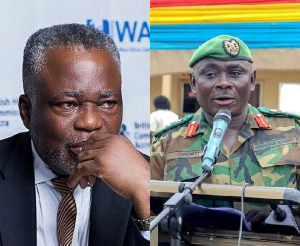The Central African Republic has launched an investigation into former President Francois Bozize, whom the government accuses of plotting a coup before last month’s elections.
On December 19, the government accused Bozize of mounting “an attempted coup” with the help of armed groups, eight days before the troubled country held presidential and legislative elections.
Three armed groups had forced an alliance and were advancing on Bangui, it said.
The United Nations peacekeeping force MINUSCA said the following day that the advance had been halted or rolled back.
“A judicial inquiry has been opened [into Bozize] with regard to current acts of destabilization and rebellion,” Public Prosecutor Laurent Lengande said in a statement on Monday.
Barred from polls
Bozize, who denies the government’s allegations, came to power in a coup in 2003 before he himself was overthrown in 2013 and the country spiralled into conflict along sectarian lines.
The 74-year-old former general slipped back into the country in December 2019 after years in exile, sparking fears he planned a comeback.
He was barred from contesting the polls by the CAR’s top court as he was the target of a 2014 arrest warrant for alleged murder and torture and was under UN sanctions.
His absence left incumbent Faustin-Archange Touadera, 63, as the clear frontrunner.
The election was attacked by the political opposition in CAR as lacking legitimacy. It could not take place in many areas – two-thirds of the country is controlled by armed groups.
According to official figures, voting did not take place in 29 of the country’s 71 sub-prefectures (sub-divisions of large administrative districts), and only partly so in six others.
Local leaders and UN workers said in many areas, armed groups hampered the organization of the elections and intimidated voters.
In addition, thousands of people were prevented from voting or never received their voting cards because of the lack of security.
The definitive results from the first round are not expected before January 18, and if there is no outright winner a runoff will be held on February 14.
Africa News of Tuesday, 5 January 2021
Source: aljazeera.com

















